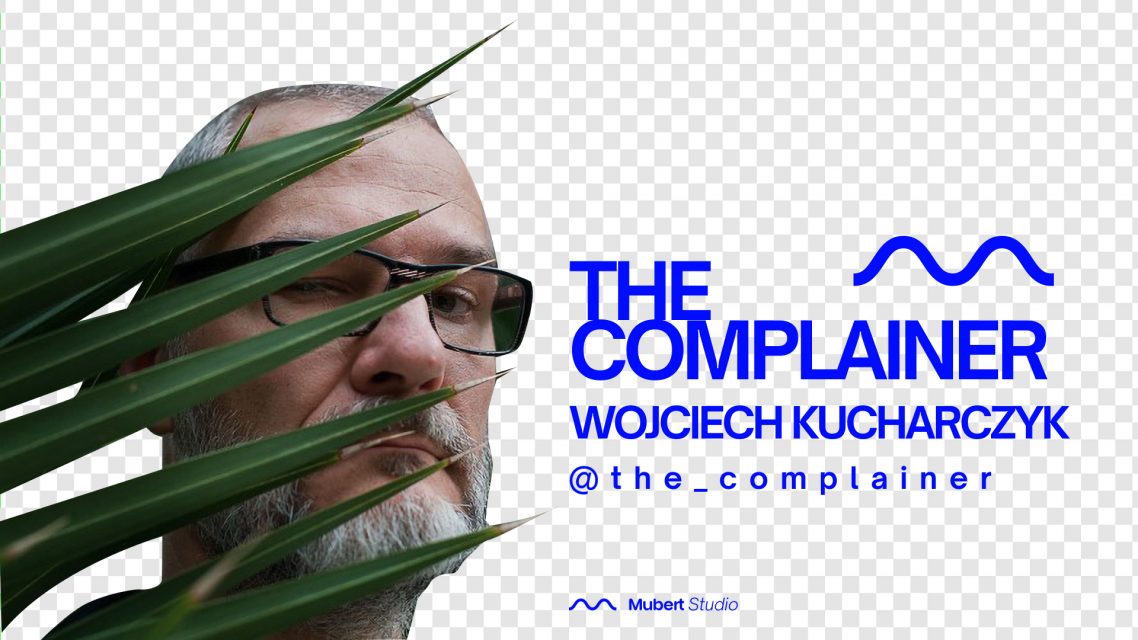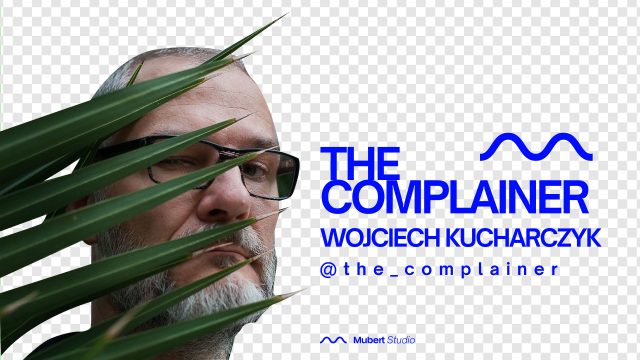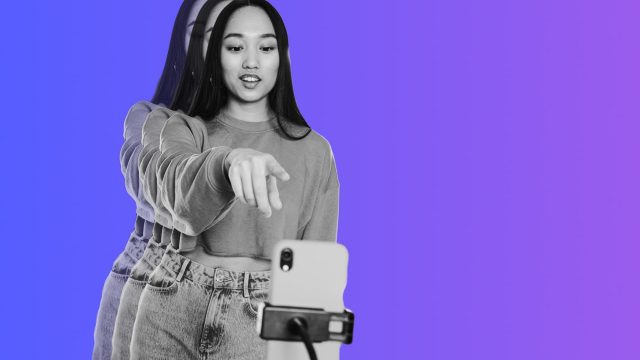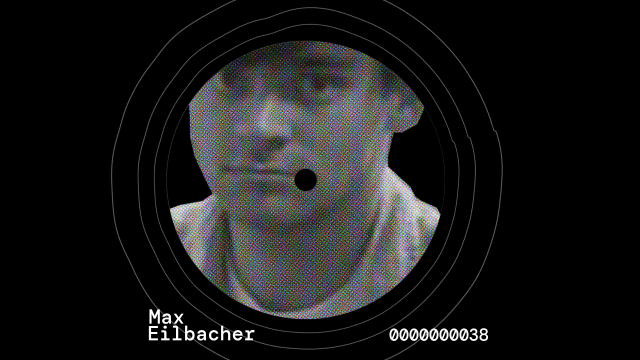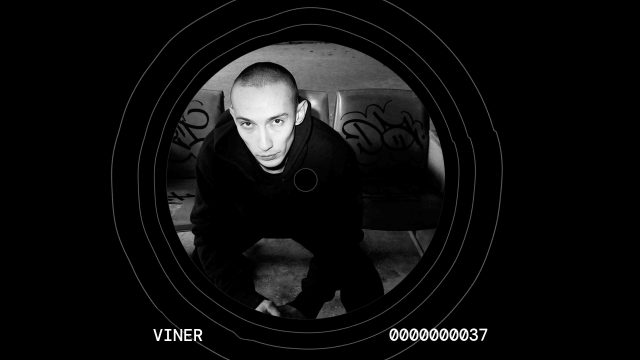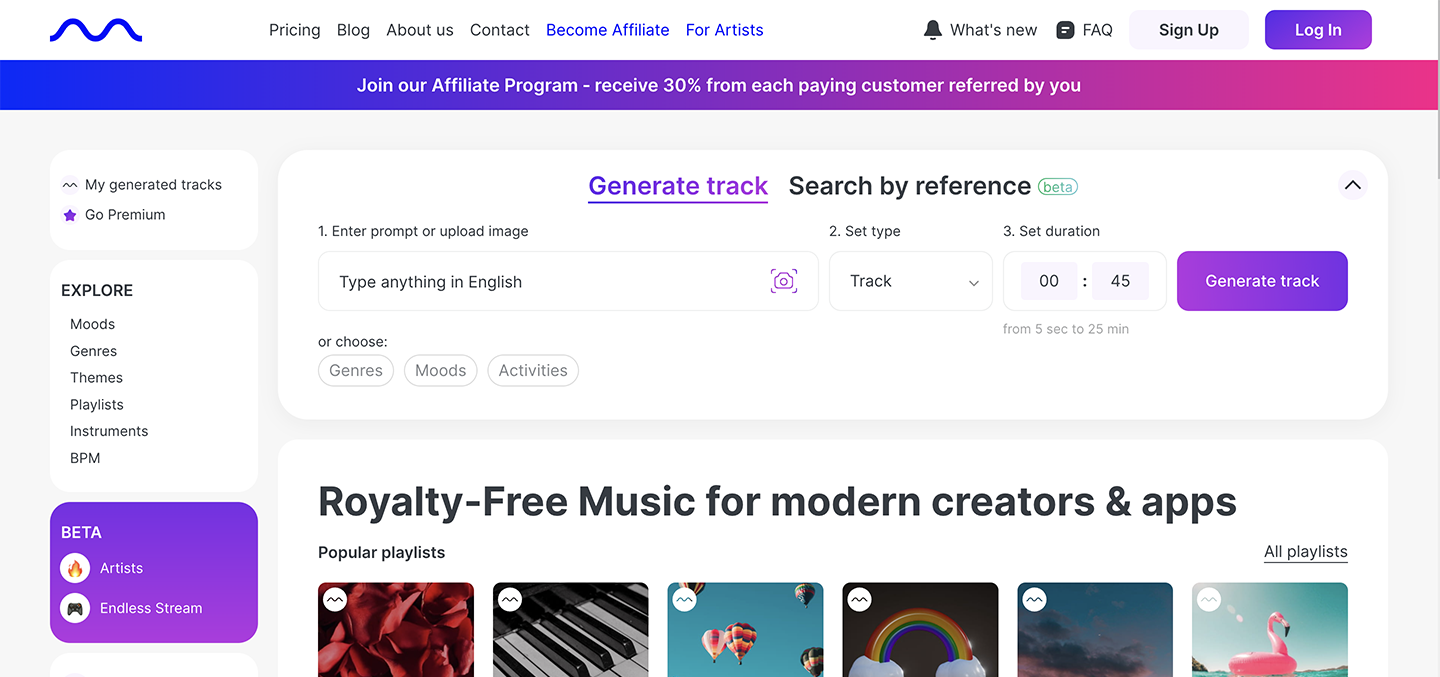
Create royalty-free AI music tracks with one click
Just describe what you want and get an instant track of any duration — and you will never meet any troubles with copyrights
Get startedIt’s hard to put a finger on exactly who this Katowice-based multidisciplinary artist is: a man of many monikers, a prolific producer, a well-known artist in the world of contemporary art, a label head, curator, designer, activist… always working overtime in any context. Kucharczyk launched his label Mik.Musik.!. in 1995 as an outlet for his genre-hopping duo Mołr Drammaz, but the label now covers some of the best and most inspiring Polish music, with a catalog boasting over 200 releases.
His works under the moniker The Complainer and Retro Sex Galaxy swerve from mangled 80’s electronic pop to glitch-heavy myriads of plunderphonic chaos, with releases on Felix Kubin’s Gagarin, Mik Musik, and Mubert. In addition, Wojciech has played shows in every corner of the globe, from Mexico City to Bishkek, and has exhibited his art in numerous places, both visible and hidden.
Listen to all of The Complainer’s streams on the Mubert app
What did you like about the process of making music with AI? What parts were interesting?
I think all of it. I decided to take part in Mubert’s project because of the possibility of working with AI. You know, I have grown up on science-fiction, electronic music came to me through this exact interest. I was looking for sounds that were robotic, unknown, mechanical, weird. So finally, a few decades later I needed to try to work with this “being”, which is a part of now, as we jumped over some sci-fi ideas (or fulfilled some prophecies), but part of it is from the future still.
Just curiosity. I was using a lot of imagination about who it could be and in this maybe intuitive way, I was preparing my streams. And finally, when I could put all the loops and stems through the AI process of co-composition I was actually stunned — it really worked in an expected-unexpected way, somehow similar to what I was imagining before, but in a regular way, I would never compose and build my tracks like that. Pure fun.
But at once I wanted to make it in a different way, better, stronger, weirder, before publishing I changed some tracks almost completely. I had the impression that after some initial tests we, me and the AI, started to understand each other better and better. I think it started to be a kind of conversation.
Technologies are evolving faster than ever before and becoming a part of our daily life. Should musicians adapt to these changes and how? What disciplines should they learn to be ready for the industry?
Of course, we still live in a free world, so it is up to your personal choice what you prefer. But in my opinion, sure musicians should at least try all of these new tools of expression. Somehow it happened that I have the possibility of checking out all the new things quite early because I believe that something completely new may be way more interesting than the old things. But we need to work, experiment, test, check out and once again work hard to achieve this artistic success. Times are changing super-fast, like never before, so it’s definitely better to try to adjust, even if it is usually a big leap out of the comfort zone.
What disciplines — I think it is enough to be your own producer, to know how to record, mix, master and how to put your music onto the internet in various ways. Briefly speaking, this is definitely the era of D.I.Y, although all those personalities should be connected. I am not speaking on isolationist terms, I am for self-efficiency and what modern tools are proposing.
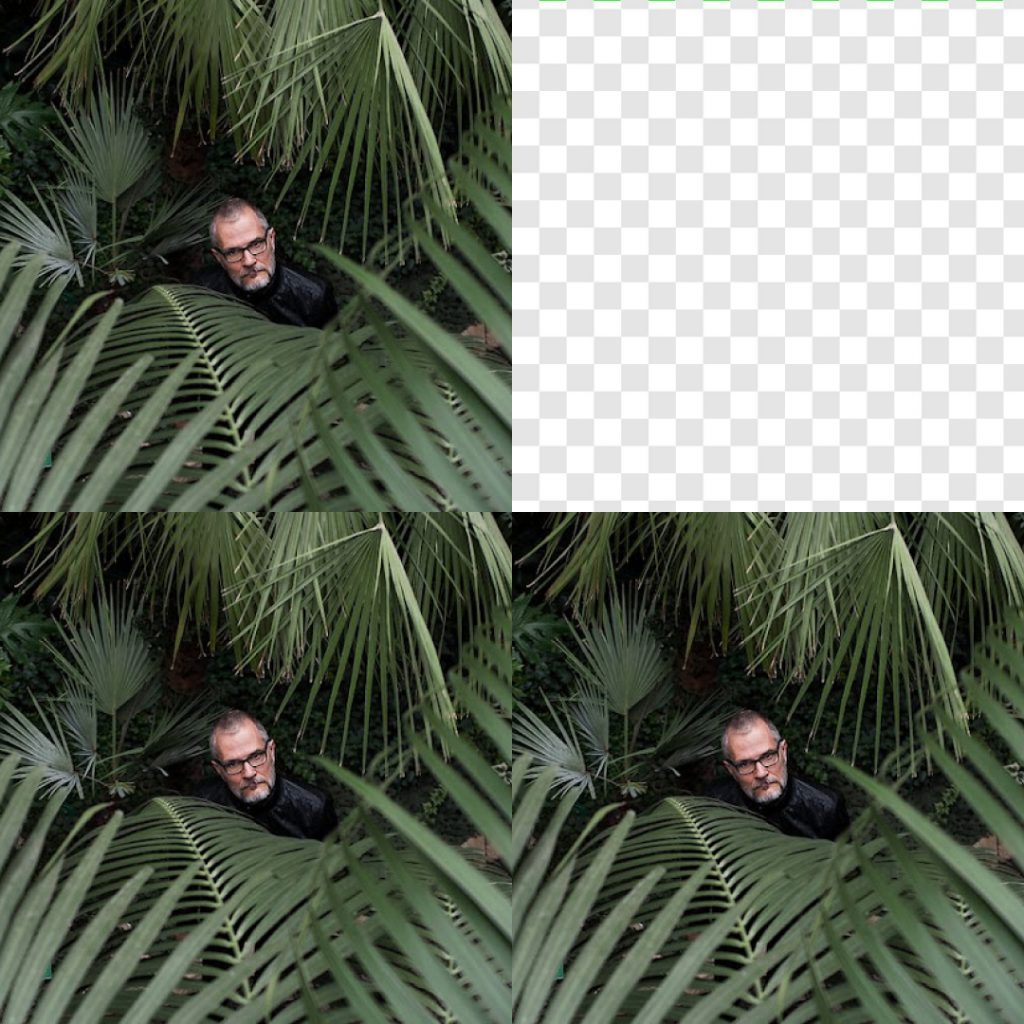
In your opinion, how will music be consumed in the near future? How will it be created?
Created in all possible ways. Sometimes I think a lot of musicians see all modern tools as a danger. Do you think computers wiped out guitars? Or autotune erased raw acapella singing? No. This is all about widening horizons and making the tools more accessible.
The only danger I see is the amount of music available. Quite often the impression is that everyone nowadays is making their own music. But maybe it is exactly what we were looking and waiting for? Special one-to-one situations. And it will grow, so so-called show-business will change drastically.
Another danger is incomes, I mean no incomes and it is already happening, to be a professional musician is a real struggle, but on the other hand, it pushes you to be better and you have to be 111% sure you really want to do this. Of course, this is not for everyone, but exactly the same can be said about every job or occupation.
Is the listener a co-creator if they are simply modifying the compositions with their likes? Should the platform provide more instruments to allow the audience to tinker with ideas and change them? What could those tools look like?
I don’t think they are already co-creators, maybe they could be kind of self-curators. But with the new tools, they can become creators. Maybe if they can have for example more ways to choose among parts of songs or samples or even such silly possibilities like “please hi-hats only” or “only vocal parts”, or “mix vocal parts from all the songs in this section”, “change the pitch”, “erase bass”… and for sure intermixing between the tracks can be helpful.
Also somehow to use the possibilities of portables, phones, tablets like gravity, temperature, GPS elements plus maybe some kind of controlled self-hacking, like ‘please use my last email as lyrics”. Because why not.
Will your general music writing process change going forward (given your experience working with Mubert AI)?
Definitely — because I can see my sounds making completely fresh “sound-buildings”. With the help of Mubert AI, it’s obvious to me that with some time I could master this way of working and the only problem right now is the amount of time I have for this. I am involved in many various projects, a lot of them are time-consuming.
I am also a visual artist working in numerous fields, so yes, time is the only problem. To prepare loops and samples for streams takes some time, you need to be very precise, actually way more careful than normal to prepare everything according to the present method of this process. So maybe another idea is to allow AI to work with less quantified material in a more loose way. I’m sure that this will come, but like everything, this next step needs some resources and… time.
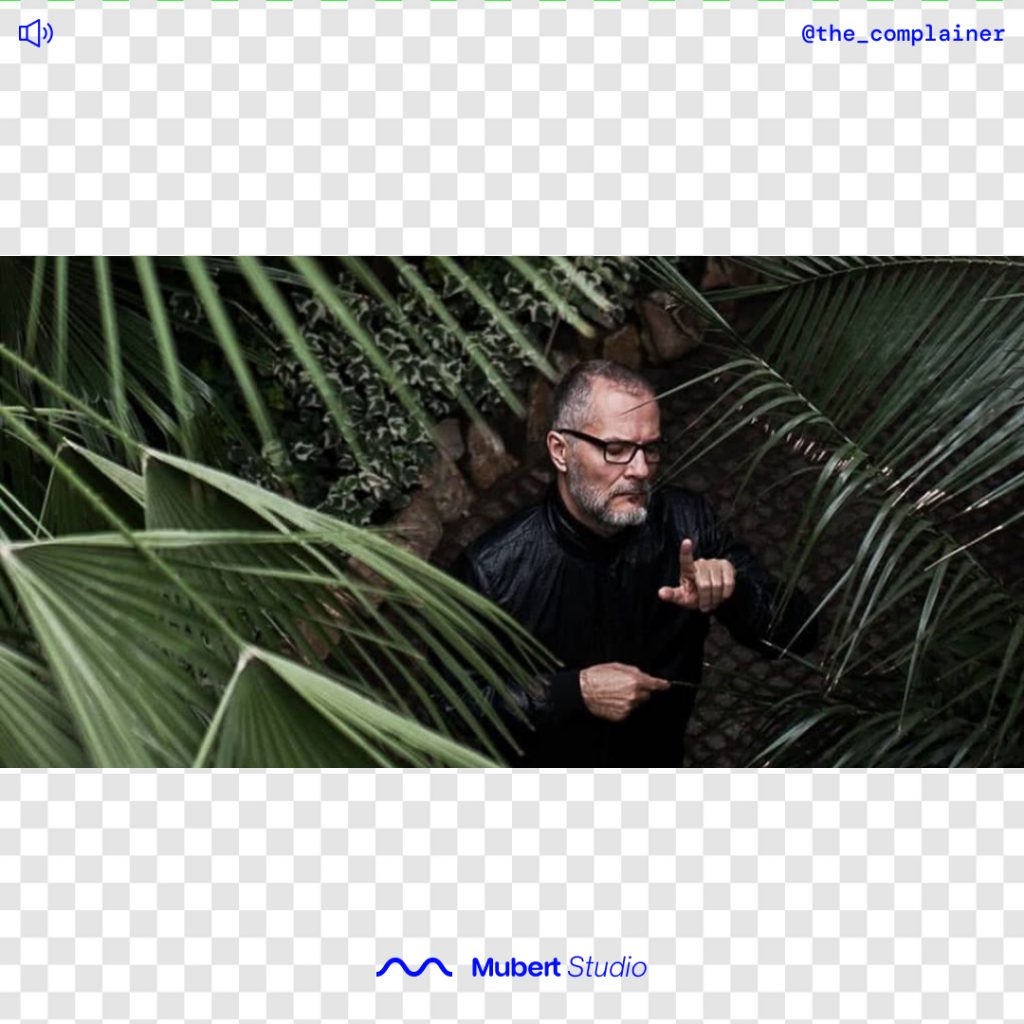
As AI becomes more and more powerful, will the role that artists play in the music industry change? What will they do? What will their day-to-day job look like?
Artists will always be artists, as it is not a way of work but a way of thinking. Recently I was thinking to myself, that art itself is a way the world is showing its sense of humor. Not that the artist suddenly becomes a comedian of sorts, but that it is all just to make the world a funnier and more pleasant place in terms of what humans can do.
So I hope everything will become more funny, absurd in a positive way, as I guess humankind needs a lot of distance to itself. Do we need AI to achieve that? Maybe.
On the other hand, how is generative music influencing overall society? How can it potentially impact communities?
It is impacting the musical community already because of streaming services, not yet generative in full, but a big part of it is the algorithms, which are rather beyond our reach. This brings a big change and it is not possible to fight with it already, it makes no sense, it is too late. So I think that understanding this will bring real change, more space for creativity, not only the times of overlapping the old world with the new one.
What it could be I don’t know yet, but algorithms became part of what we do and how we distribute our stuff, so generative content will be the next level, like the vast ocean of sounds which you can touch and breathe with it. Kind of artificial nature? Could be. Until you can choose what forest to visit or in which sea you want to swim I am absolutely fine with it.
Artist Interviews Artists InterviewsAI Music Company
Mubert is a platform powered by music producers that helps creators and brands generate unlimited royalty-free music with the help of AI. Our mission is to empower and protect the creators. Our purpose is to democratize the Creator Economy.
Generate Track API for Developers
